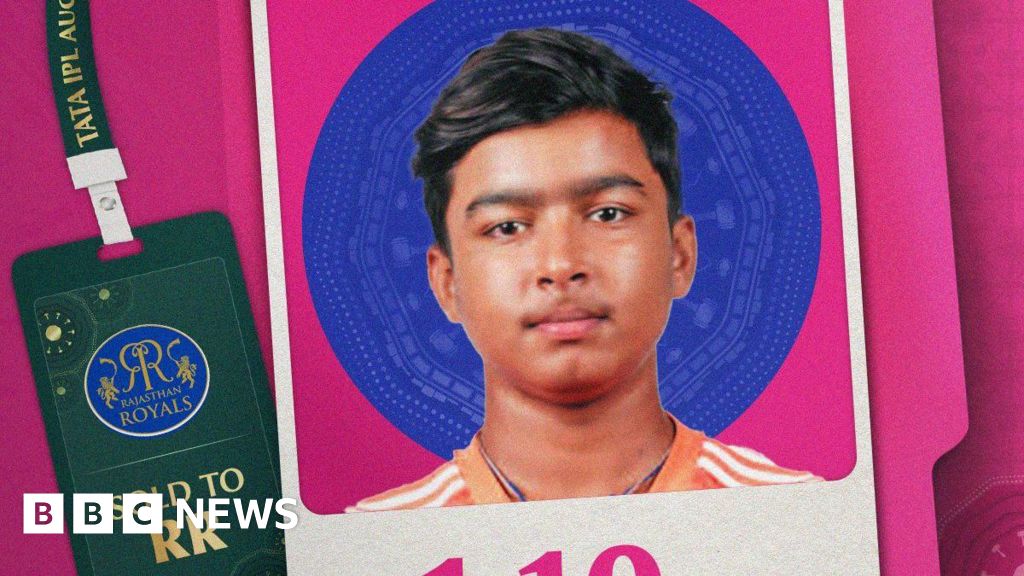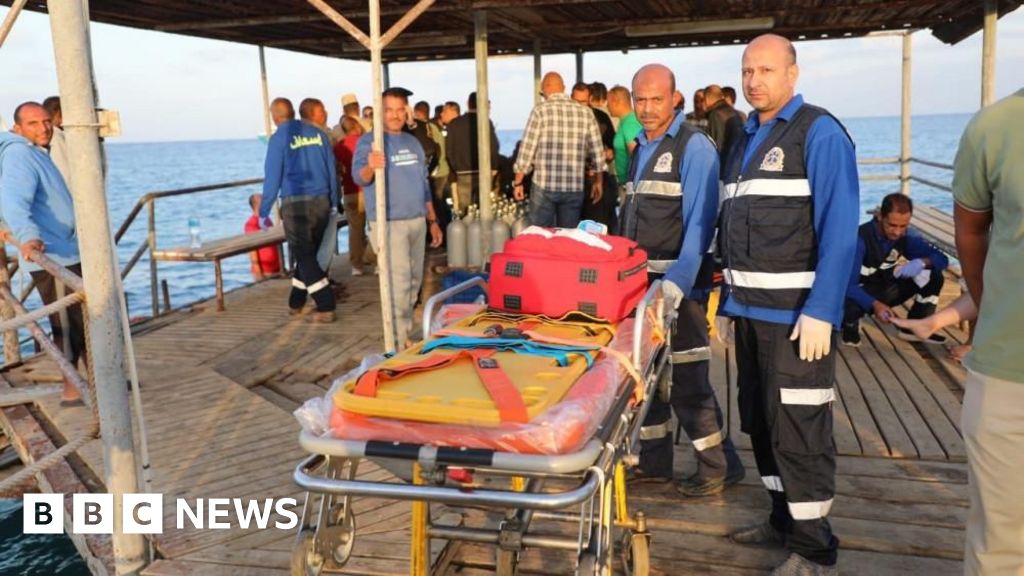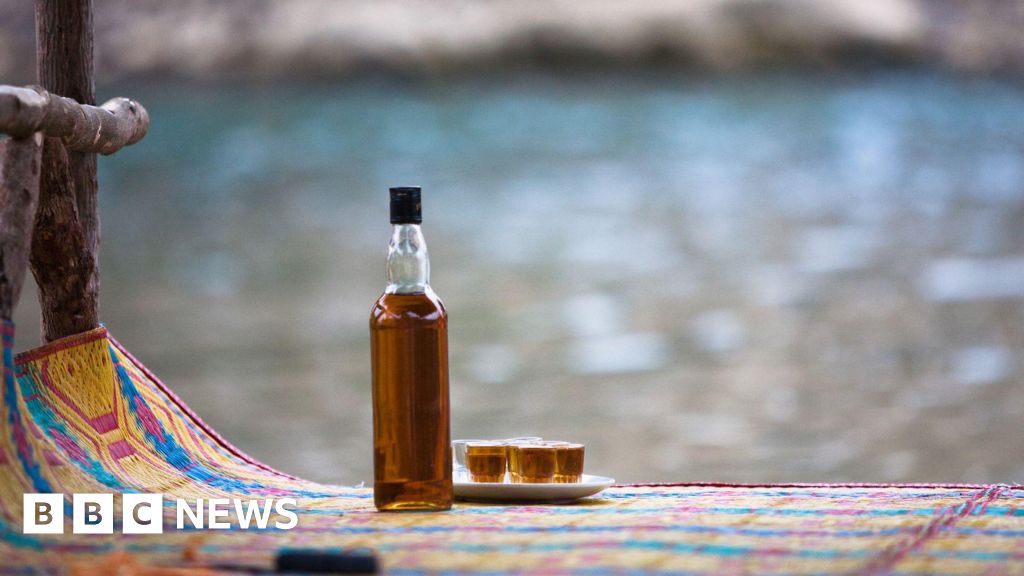ARTICLE AD BOX
Al Jazeera has strongly rejected the Israeli military’s claim that its correspondent killed in an air strike in Gaza this week was a Hamas operative who participated in the 7 October attacks.
Harrowing video shared on social media showed Ismail al-Ghoul’s decapitated body after he was targeted in his car in Gaza City on Wednesday.
His cameraman, Rami al-Rifi, and a boy passing on a bicycle, Khalid Shawa, were also killed.
While regional news this week has been dominated by other high-profile assassinations, many Palestinians have also focused on the killing of the locally prominent journalist.
In a statement on Thursday, the Israel Defence Forces (IDF) described Ismail al-Ghoul as a “Hamas military wing operative and Nukhba terrorist”, suggesting he was part of an elite unit in the armed group.
It alleged that as part of his role he “instructed other operatives on how to record operations and was actively involved in recording and publicising attacks against IDF troops”.
Al Jazeera called the accusation against its staff member “baseless” and said it “highlights Israel’s long history of fabrications and false evidence used to cover up its heinous crimes”.
Ismail's brother Jihad also told the BBC that his late sibling was strictly a civilian “portraying the suffering of the Palestinian people inside Gaza City to the outside world”.
Based in Gaza City, the reporter had become a regular face on the Qatar-based TV channel, which is a popular news source in the region but has faced intense criticism from Israeli authorities.
As Friday prayers in Gaza were dedicated to the late Hamas leader, Ismail Haniyeh, who was assassinated in the Iranian capital Tehran, some Palestinians said they were also thinking about those who had been killed closer to home.
“I am truly heartbroken about Ismail [al-Ghoul],” commented Maha Sarsak, who has been displaced from Shujaiyeh to the centre of the strip. “I was keeping up on the news in the north through him on social media. We didn’t always have a TV, but we could hear his voice on the radio.”
Journalists in Gaza laid down their flak jackets at one gathering to honour al-Ghoul and al-Rifi this week.
A friend of the pair said: “They hadn’t been sleeping for days nor eating. They had even lost a lot of weight.”
Ismail al-Ghoul covered Israel’s raid of Shifa Hospital in March and was arrested by the IDF at the site - but released after 12 hours without charge. Al Jazeera claimed this “debunks and refutes their false claim of his affiliation with any organisation”.
The two Al Jazeera journalists’ last assignment had been gathering reaction to news of Haniyeh’s death. Their car was targeted close to the Hamas leader’s destroyed house in Shati Camp, an urban refugee camp.
Israel has blocked international journalists from entering the Palestinian territory during the war, except on limited and highly controlled visits with the Israeli military. Prior to the closure of its Rafah border crossing with Gaza, Egypt also prevented reporters from entering.
Over 10 months, many networks, including the BBC, have relied on local Palestinian staff for their on-the-ground news coverage and taken on new employees or freelancers.
Al Jazeera said that Ismail al-Ghoul had been working for the channel since November. It said that he had endured “hardships” during the war including losing his father and brother.
Other cameramen spoke of how al-Rifi had used his technical expertise to help them with their filming.
After images of a dead Khaled al-Shawa, the boy killed in the strike, were widely publicised, the boy’s mother put out a message on social media pleading for him to be remembered too.
“My son is not an unidentified martyr,” she said. “We must say the names of our martyrs. They should not talk about us as numbers.”
Al Jazeera, which broadcasts in English and Arabic, has recently seen a series of attacks against its staff in Gaza and their families.
In late October, Wael Dahdouh, the network’s well-known bureau chief, was reporting when he received word on-air that his wife, daughter, a son, and grandchild were killed in an Israeli airstrike.
In December, he was injured in an attack that also killed another Al Jazeera cameraman, Samer Abudaqa.
In January, a strike killed Mr Dahdouh’s son, Hamza, and Mustafa Thuria, a video stringer, while they were working for Al Jazeera. The IDF later alleged the men were “members of Gaza-based terrorist organizations".
Al Jazeera has previously fiercely denied Israel’s claims and accused it of systematically targeting its employees.
The network has also condemned the decision by Israel’s government in May to ban its broadcast in the country on accusations it harms national security. Last month, the ban was extended by the Tel Aviv District Court.
The United Nations has called for a full investigation and accountability for the killings of the Al Jazeera journalists and others, saying that journalists everywhere must be protected.
There are differing tallies of the number of media workers killed since the unprecedented, deadly Hamas-led attacks on Israel that prompted the war in Gaza.
However, according to the Committee to Protect Journalists, the latest deaths in Gaza bring the number of journalists killed to 113, including 108 Palestinians, three Lebanese and two Israelis who were killed during the 7 October assault.

 3 months ago
14
3 months ago
14








 English (US)
English (US)